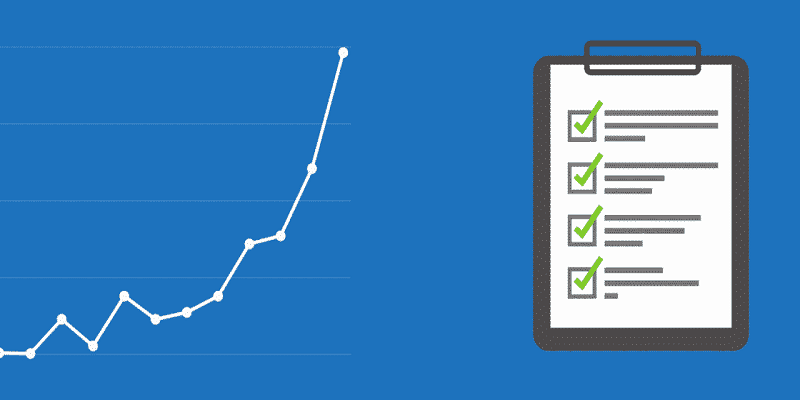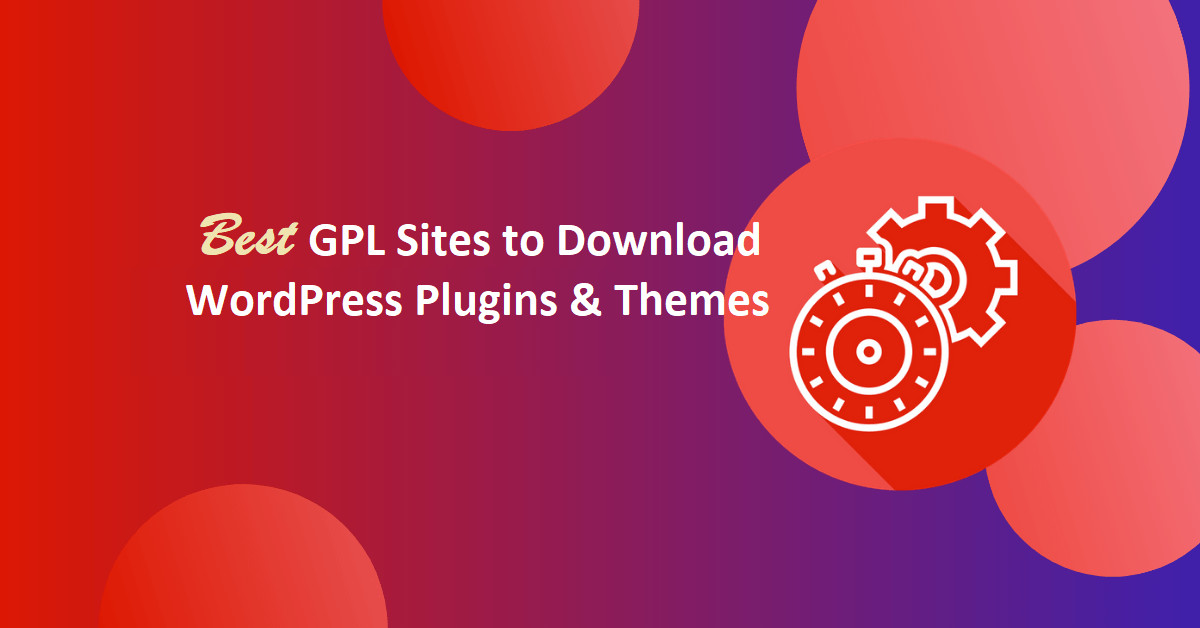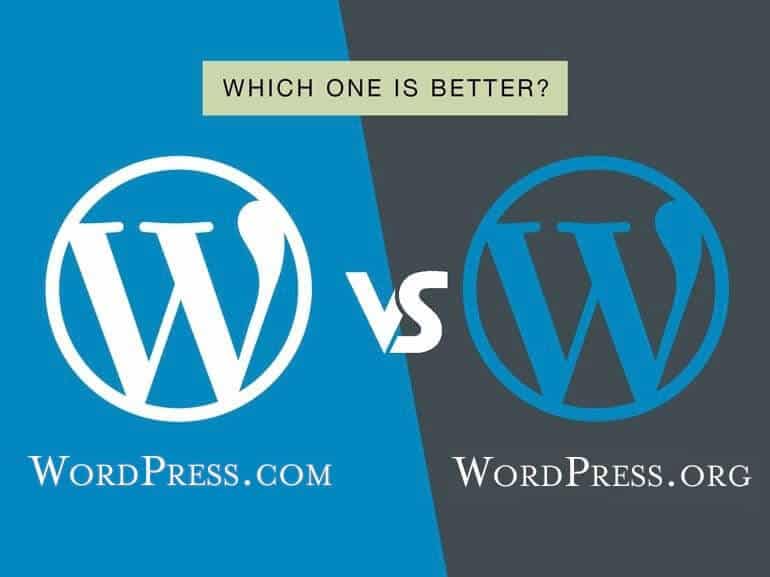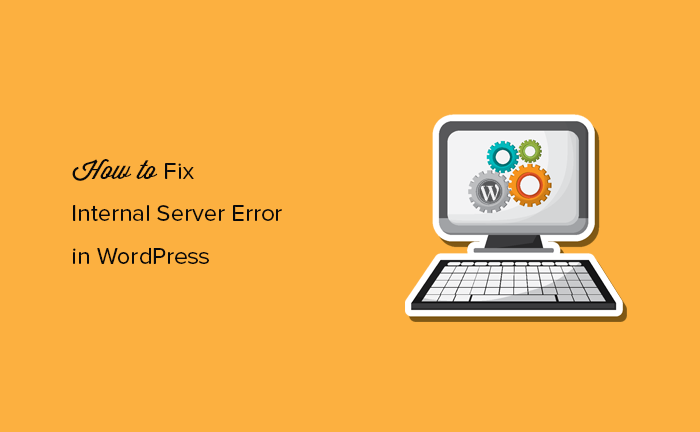Everyone knows to write, but writing a blog post that is loved by Google is a trick. What are the factors you should consider while writing a blog post to make it search engine optimized? This Technical SEO checklist 2018 will tell you how to optimize blog posts for SEO and get better ranking on the google search for your keywords.
For better understanding, this checklist is made in table form. You should always consider all SEO checklist points while writing a blog post and optimize it for SEO.
Also Read:
- What Is SEO and How It Works – SEO Tutorial & Guide For Beginners
- How To Improve WordPress On-Page SEO – Beginners Guide
Technical SEO Checklist |
|||
|
1 |
Keywords in <title> |
That is one of the maximum important places to have key phrases which are reflecting the content |
+3 |
|
2 |
Keywords in URL |
Key phrases in URLs assist plenty – Example – http://domainname.Com/search engine optimization-services.Html, where “search engine optimization offerings” is the keyword phrase you try to rank well for. However in case you do not have the key phrases in other elements of the file, don’t depend upon having them inside the URL. Keyword in URL should be the principle keyword for that you |
+3 |
|
3 |
Keyword density in document |
Another very crucial component you want to test. Three-Six % for predominant key phrases is exceptional, 1-2 for the minor. Key-word density of over 10% is suspicious and looks extra like keyword stuffing, then an evidently written textual content. Well, Google hates key-word stuffing. So attempt warding off that. |
+3 |
|
4 |
Keywords |
Also very crucial, mainly for the anchor text of inbound links, due to the fact if you have the keyword |
+3 |
|
5 |
Keywords in headings |
One more place where keywords count a lot. But beware that your page has actual text about the |
+3 |
|
6 |
Keywords at the beginning of a document |
Also count, though now not as a great deal as anchor text, name tag or headings. However, have in |
+2 |
|
7 |
Keywords in <alt> tags |
Spiders don’t read images but they do read their textual descriptions in the <alt> tag, so if you |
+2 |
|
8 |
Keywords in meta tags |
Much less and much less crucial, especially for Google. Yahoo! And Bing nonetheless relies on them, so in case you are optimizing for Yahoo! Or Bing, fill these tags nicely. Anyways, filling these tags well will not hurt and will now not impact your Google ranking. |
+1 |
|
9 |
Keyword proximity |
Keyword proximity measures how close in the text the keywords are. It is best if they are immediately |
+1 |
|
10 |
Keyword phrases |
Further to key phrases, you may optimize for keyword phrases that consist of numerous words – e.G. “SEO offerings”. It is fine whilst the keyword terms you optimize for are famous ones, so you can get a variety of specific suits of the search string but once in a while it makes feel to optimize for 2 or 3 separate key phrases (“SEO” and “offerings”) than for one word that would once in a while get a precise fit. |
+1 |
|
11 |
Secondary keywords |
Optimizing for secondary key phrases can be a gold mine due to the fact whilst everybody else is |
+1 |
|
12 |
Keyword Stemming |
For English this is not so much of a factor because words that stem from the same root (e.g. dog, dogs, doggy, etc.) are considered related and if you have “dog” on your page, you will get hits for “dogs” and “doggy” as well, but for other languages keywords stemming could be an issue because different words that stem from the same root are considered as not related and you might need to optimize for all of them. |
+1 |
|
13 |
Synonyms |
Optimizing for synonyms of the target keywords, in addition to the main keywords. This is good for sites in English, for which search engines are smart enough to use synonyms as well when ranking sites but for many other languages synonyms are not taken into account when calculating rankings and relevancy. |
+1 |
|
14 |
Keyword Mistypes |
Spelling errors are very frequent and in case you understand that your target keywords have famous |
0 |
|
15 |
Keyword dilution |
When you are optimizing for an excessive amount of keywords, especially unrelated ones, this will affect the performance of all your keywords and even the major ones will be lost (diluted) in the text. |
-2 |
|
16 |
Keyword stuffing |
Any artificially inflated keyword density (10% and over) is keyword stuffing and you risk getting |
-3 |
Links – internal, inbound, outbound |
|||
|
17 |
Anchor text of inbound links |
As discussed in the Keywords section, this is one of the most important factors for good rankings. It is |
+3 |
|
18 |
Origin of inbound links |
Besides the anchor text, it is important if the site that links to you is a reputable one or not. Generally, sites with greater Google PR are considered reputable. Links from poor sites and link farms can do real harm to you, so avoid them at all costs. |
+3 |
|
19 |
Links from similar sites |
Generally the more, the better. But the reputation of the sites that link to you is more important |
+3 |
|
20 |
Links from .edu and .gov sites |
These links are precious because .edu and .gov sites are more reputable than .com. .biz, .info, |
+3 |
|
21 |
Number of backlinks |
Generally the more, the better. But the reputation of the sites that link to you is more important |
+3 |
|
22 |
Anchor text of internal |
This also matters, though not as much as the anchor text of inbound links. |
+2 |
|
23 |
Around-the-anchor text |
The text that is immediately before and after the anchor text also matters because it further indicates |
+2 |
|
24 |
Age of inbound links |
The older, the better. Getting many new links in a short time suggests buying them. |
+2 |
|
25 |
Links from directories |
Could work, though it strongly depends on which directories. Being listed in DMOZ, Yahoo Directory |
+2 |
|
26 |
Number of outgoing links on |
The fewer, the better for you because this way your link looks more important. |
+1 |
|
27 |
Named anchors |
Named anchors (the target place of internal links) are useful for internal navigation but are also useful for SEO because you stress additionally that a particular page, paragraph or text is important. In the code, named anchors to look like this: <A href=“#dogs”>Read about dogs</A> and “#dogs” is the named anchor. |
+1 |
|
28 |
IP address of the inbound link |
Google denies that they discriminate against links that come from the same IP address or C class of |
+1 |
|
29 |
Inbound links from link |
Presumably, this does not affect you, provided the links are not reciprocal. The idea is that it is |
0 |
|
30 |
Many outgoing links |
Google does not like pages that consist mainly of links, so you’d better keep them under 100 per page. Having many outgoing links does not get you any benefits in terms of ranking and could even make your situation worse. |
-1 |
|
31 |
Excessive linking, link |
It is bad for your rankings when you have many links to/from the same sites (even if it is not a crosslinking scheme or links to bad neighbors) because it suggests link buying or at least spamming. In the best case, only some of the links are taken into account for SEO rankings. |
-1 |
|
32 |
Outbound links to link farms |
Unlike inbound links from link farms and other suspicious sites, outbound links to bad neighbors can drown you. You need periodically to check the status of the sites you link to because sometimes good sites become bad neighbors and vice versa. |
-3 |
|
33 |
Cross-linking |
Cross-linking occurs when site A links to site B, site B links to site C and site C links back to site |
-3 |
|
34 |
Single pixel links |
when you have a link that is a pixel or so wide it is invisible for humans, so nobody will click on it and it is obvious that this link is an attempt to manipulate search engines. |
-3 |
Metatags |
|||
|
35 |
<Description> meta tag |
Meta tags are becoming less and less important but if there are meta tags that still matter, these are the <description> and <keywords> ones. Use the <Description> metatag to write the description of your site. Besides the fact that meta tags still rock on Bing and Yahoo!, the <Description> metatag has one more advantage – it sometimes pops in the description of your site in search results. |
+1 |
|
36 |
<Keywords> meta tag |
The <Keywords> metatag also matters, though as all meta tags it gets almost no attention from Google and some attention from Bing and Yahoo! Keep the metatag reasonably long – 10 to 20 keywords at most. Don’t stuff the <Keywords> tag with keywords that you don’t have on the page, |
+1 |
|
37 |
<Language> meta tag |
If your site is language-specific, don’t leave this tag empty. Search engines have more sophisticated ways of determining the language of a page than relying on the <language>meta tag but they still consider it. |
+1 |
|
38 |
<Refresh> meta tag |
The <Refresh> meta tag is one way to redirect visitors from your site to another. Only do it if you have recently migrated your site to a new domain and you need to temporarily redirect visitors. When used for a long time, the <refresh> meta tag is regarded as unethical practice and this can hurt your ratings. In any case, redirecting through 301 is much better. |
-1 |
Content |
|||
|
39 |
Unique content |
Having more content (relevant content, which is different from the content on other sites both in |
+3 |
|
40 |
The |
Frequent changes are favored. It is great when you constantly add new content but it is not so great when you only make small updates to existing content. |
+3 |
|
41 |
Keywords font size |
When a keyword in the document text is in a larger font size in comparison to other on-page text, this makes it more noticeable, so therefore it is more important than the rest of the text. The same applies to headings (<h1>, <h2>, etc.), which generally are in larger font size than the rest of the text. |
+2 |
|
42 |
Keywords formatting |
Bold and italic are another way to emphasize important words and phrases. However, use bold, italic and larger font sizes within reason because otherwise, you might achieve just the opposite effect. |
+2 |
|
43 |
Age of document |
Recent documents (or at least regularly updated ones) are favored. |
+2 |
|
44 |
File size |
Generally, long pages (i.e. 1,500-2,000 words or more) are not favored, or at least you can achieve better rankings if you have 3 short (500-1,000 words) rather than 1 long page on a given topic, so split long pages into multiple smaller ones. On the other hand, pages with 100-200 words of text or less are also disliked by Google. |
+1 |
|
45 |
Content separation |
From a marketing point of view content separation (based on IP, browser type, etc.) might be great but |
-2 |
|
46 |
Poor coding and design |
Search engines say that they do not want poorly designed and coded sites, though there are hardly sites that are banned because of messy code or ugly images but when the design and/or coding of a site is poor, the site might not be indexable at all, so in this sense poor code and design can harm you a lot. |
-2 |
|
47 |
Illegal Content |
Using other people’s copyrighted content without their permission or using content that promotes |
-3 |
|
48 |
Invisible text |
This is a black hat SEO practice and when spiders discover that you have text specially for them but not for humans, don’t be surprised by the penalty. |
-3 |
|
49 |
Cloaking |
Cloaking is another illegal technique, which partially involves content separation because spiders see |
-3 |
|
50 |
Doorway pages |
Creating pages that aim to trick spiders that your site is a highly-relevant one when it is not, is another way to get the kick from search engines. |
-3 |
|
51 |
Duplicate content |
When you have the same content on several pages on the site, this will not make your site look |
-3 |
Visual Extras and SEO |
|||
|
52 |
JavaScript |
If used wisely, it will not hurt. But if your main content is displayed through JavaScript, this makes it |
0 |
|
53 |
Images in text |
Having a text-only site is so boring but having many images and no text is an SEO sin. Always provide in the <alt> tag a meaningful description of an image but don’t stuff it with keywords or irrelevant |
0 |
|
54 |
Podcasts and videos |
Podcasts and videos are becoming more and more popular but as with all non-textual goodies, search |
0 |
|
55 |
Images instead of text links |
Using images instead of text links is bad, especially when you don’t fill in the <alt> tag. But even |
-1 |
|
56 |
Frames |
Frames are very, very bad for SEO. Avoid using them unless really necessary. |
-2 |
|
57 |
Flash |
Spiders don’t index the content of Flash movies, so if you use Flash on your site, don’t forget to give it an alternative textual description. |
-2 |
|
58 |
A Flash home page |
Fortunately, this epidemic disease seems to have come to an end. Having a Flash home page (and sometimes whole sections of your site) and no HTML version, is a SEO suicide. |
-3 |
Domains, URLs, Web Mastery |
|||
|
59 |
Keyword-rich URLs and |
A very important factor, especially for Yahoo! and Bing. |
+3 |
|
60 |
Site Accessibility |
Another fundamental issue, which that is often neglected. If the site (or separate pages) is inaccessible because of broken links, 404 errors, password-protected areas and other similar reasons, then the site |
+3 |
|
61 |
Sitemap |
It is great to have a complete and up-to-date sitemap, spiders love it, no matter if it is a plain old HTML sitemap or the special Google sitemap format. |
+2 |
|
62 |
Site size |
Spiders love large sites, so generally, it is the bigger, the better. However, big sites become user-unfriendly and difficult to navigate, so sometimes it makes sense to separate a big site into a couple of smaller ones. On the other hand, there are hardly sites that are penalized because they are 10,000+ pages, so don’t split your size into pieces only because it is getting larger and larger. |
+2 |
|
63 |
Site age |
Similarly to wine, older sites are respected more. The idea is that an old, established site is more trustworthy (they have been around and are here to stay) than a new site that has just popped up and might soon disappear. |
+2 |
|
64 |
Site Theme |
It is not only keywords in URLs and on the page that matter. The site theme is even more important for good ranking because when the site fits into one theme, this boosts the rankings of all its pages that are related to this theme. |
+2 |
|
65 |
File Location on Site |
File location is important and files that are located in the root directory or near it tend to rank better than files that are buried 5 or more levels below. |
+1 |
|
66 |
Domains versus subdomains, |
Having a separate domain is better – i.e. instead of having blablabla.blogspot.com, register a separate |
+1 |
|
67 |
Top-level domains (TLDs) |
Not all TLDs are equal. There are TLDs that are better than others. For instance, the most popular |
+1 |
|
68 |
Hyphens in URLs |
Hyphens between the words in an URL increase readability and help with SEO rankings. This applies both to hyphens in domain names and in the rest of the URL. |
+1 |
|
69 |
URL length |
Generally doesn’t matter but if it is a very long URL-s, this starts to look spammy, so avoid having more than 10 words in the URL (3 or 4 for the domain name itself and 6 or 7 for the rest of address is acceptable). |
0 |
|
70 |
IP address |
Could matter only for shared hosting or when a site is hosted by a free hosting provider when the IP or |
0 |
|
71 |
Adsense will boost your ranking |
Adsense is not related in any way to SEO ranking. Google will definitely not give you a ranking bonus because of hosting Adsense ads. Adsense might boost your income but this has nothing to do with your search rankings. |
0 |
|
72 |
Adwords will boost your ranking |
Similarly to Adsense, Adwords has nothing to do with your search rankings. Adwords will bring |
0 |
|
73 |
Hosting downtime |
Hosting downtime is directly related to accessibility because if a site is frequently down, it can’t be indexed. But in practice, this is a factor only if your hosting provider is really unreliable and has less than 97-98% uptime. Try using a reputed hosting provider such as Hostgator for hosting. |
-1 |
|
74 |
Dynamic URLs |
Spiders prefer static URLs, though you will see many dynamic pages on top positions. Long dynamic URLs (over 100 characters) are really bad and in any case, you’d better use a tool to rewrite dynamic |
-1 |
|
75 |
Session IDs |
This is even worse than dynamic URLs. Don’t use session IDs for information that you’d like to be |
-2 |
|
76 |
Bans in robots.txt |
If indexing of a considerable portion of the site is banned, this is likely to affect the non banned |
-2 |
|
77 |
Redirects (301 and 302) |
When not applied properly, redirects can hurt a lot – the target page might not open, or worse – a redirect can be regarded as a black hat technique when the visitor is immediately taken to a different page. |
-3 |
Top SEO Web Hosting Companies
If you have submitted your site again and again to Search Engines but you are still unable to get it indexed, it MAY be your Web hosting provider who is responsible. To be safe its best to host with a reputed Website Hosting Provider.
Your Web Hosting provider should be up 24/7. For proper website service, it must be up 100% of the time so that Users and Search Engines aren’t faced with a blank page or a 404 error.
Search engines have no specific schedules for crawling, so your website must be up at all times in order to maintain your Search Engine Ranking.
Below is a list of the Top Hosting companies in order of their rank.
| Rank | Web Host | Price | Features | Customer Ratings | |
| 1 | |
$2.95 | • FREE Domain • FREE SSL Certificate • 1-Click WordPress Installs • 24/7 Support |
|
|
| 2 | |
$3.95 | • Free site transfer • 10GB Web Space • Suitable for ~ 10,000 Visits Monthly • Unmetered Traffic |
|
Visit Site |
| 3 | |
$3.95 | • EASY Control Panel (Try Demo) • 1-CLICK Script Installs • $100 Google AdWords Offer • $100 Yahoo!/Bing Credit |
|
Visit Site |
| 4 | |
$3.92 | • FREE Domain • FREE SSL Certificate • 1-Click WordPress Installs • 24/7 Support |
Visit Site |
You must keep in mind the technical SEO checklist before you publish your post on your blog. Suggestions and feedbacks are always welcome. Leave a comment about this article.
You might also like: How To Optimize WordPress Post For Multiple Focus Keywords
If you liked this article, then please subscribe to our YouTube Channel for WordPress video tutorials. You can also find us on Twitter and Facebook









